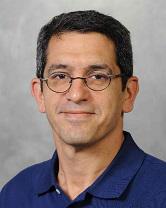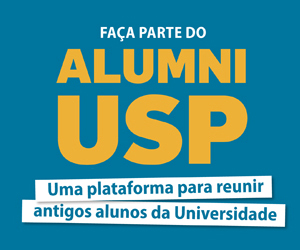COLÓQUIOS DO IFUSP – em inglês

Data: quinta-feira, 26 Outubro, 2017 - 16:00
Palestrante: Prof. Yaakov (kOBY) Levy - Weizmann Institute of Science, Israel
Local: Auditório Abrahão de Moraes - IFUSP
THE EFFECT OF POST-TRANSLATIONAL MODIFICATIONS ON PROTEIN BIOPHYSICS
Yaakov (Koby) Levy1
1Department of Structural Biology, Weizmann Institute of Science, Rehovot, Israel
ABSTRACT:
Proteins, similarly to other biomolecules, are modular and hierarchical in nature. Various building blocks serve to construct proteins of high structural complexity and diverse functionality. In multi-domain proteins, for example, domains are fused to each other in different combinations to generate different functions. Despite the justified Lego metaphor to simply the complexity of proteins 3-dimensional structures, several fundamental properties (such as allostery or the induced-fit mechanism) demand deviation from the Lego metaphor as plasticity and softness is essential for function. In my lecture, I will discuss a non-Lego protein behavior in multi-domain proteins and due to post-translational modifications. While earlier studies showed that a protein domain is often unaffected by fusing to another domain or becomes more stable due to a formation of a new interface between the tethered domains, a destabilization by tethering has been reported for several systems. Protein destabilization due to fusion to other domains might be linked in some cases to biological function and should be taken into account when designing large assemblies. Post-translational modifications (PTMs), which are ubiquitous in the cell, are often believed to regulate protein activity by changing the protein surface and introducing new functional groups that act as a signaling tag for binding to other molecules. We showed that PTMs may also control a protein function by modulating the protein biophysical characteristics. PTMs, therefore, can enrich the repertoire of protein characteristics beyond that dictated by their sequence and can be viewed as an economical way to introduce larger diversity to the proteins encoded in the genome. In the lecture, the effect of glycosylation and ubiquitination on the biophysical properties of proteins will be discussed and the linkage between the biophysics and function of the PTMs.
ABOUT THE SPEAKER:
Prof. Levy is focused on advancing the understanding of biomolecules (the sequence-structure-function problem) using a battery of computational and theoretical methods that capture their chemical and physical nature as well as the billions of years of evolutional design. His main aim is to decipher the complexity of proteins and nucleic acids that results in self-recognition and cellular communication and therefore a biological function. Unraveling mysteries on the structure, assembly, and interactions at the molecular level have long-term implications for combating medical conditions such as Creuzfeld-Jacob (Mad Cow disease), Alzheimer, and cancer.
Transmissão via IPTV: www.iptv.usp.br
Mais informações:













